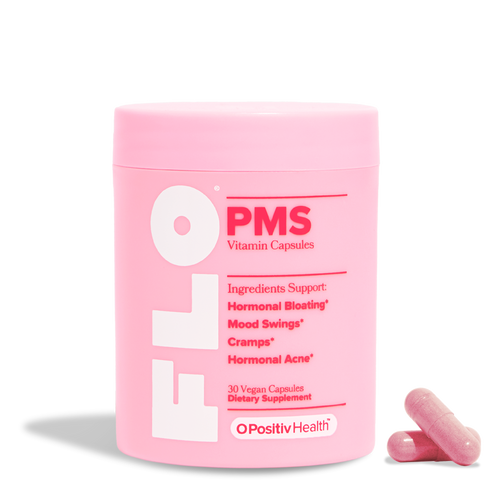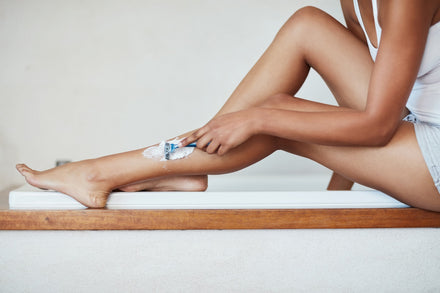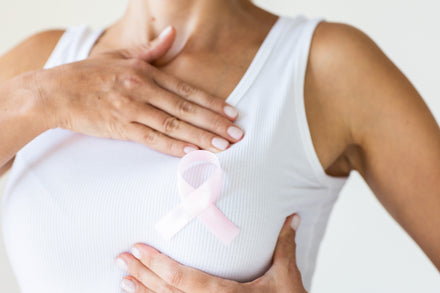Listen. We’ve all been there. You’ve read an out-of-the-box take on vaginal wellness, some sexual fantasy is finally getting acted out, you’re exploring with some quality solo time, or maybe your’re just trying out some latest Goop trend when the question arises: Wait, can I put that in my vagina?
Honestly, the answer to that question is usually “No.”
There are far more things you shouldn’t put up there than you should. (Put the produce down, ladies.) But there are a number of things that you actually can—and sometimes, probably should—be putting in your vagina.
Don’t worry; you don’t need to clear your browser history later. We’ve done the research for you. In fact, we’ve brought in Dr. Katherine Schwab MD, Obstetrics and Gynecology in Seattle, to help us on this “Should I/Shouldn’t I?” journey.
Do Not Insert
We’ll start out with the list of “no-nos” here. Keep in mind, we can’t possibly list every single thing you shouldn’t put in your vagina (think drugs, weapons, a Rolex watch, a pipe, lighters, money, a cell phone, cigarettes, makeup, and fireworks*), but instead we’ll go over some of the more commonly asked about items.
*Fun fact: According to the National Coalition for Sexual Health, these are all items some people have actually tried to smuggle or hide inside their vaginas.1 Please, do not try this at home. We beg you.
Whip cream or sugar-based products: According to Dr. Schwab, even though sugar is a natural substance, it has no place in the vagina. “There are healthy bacteria that are supposed to live in the vagina called lactobacilli. Our vagina naturally has glycogen, which is a form of stored sugar.2 This glycogen is an energy source for the healthy bacteria, lactobacilli. Other more simple sugars like glucose/sucrose/fructose can encourage growth of yeast and other bacteria in the vagina.”
Fruits and vegetables: “There are chemicals, sprays, and sugars on or in fruits and vegetables that should not be in the vagina,” says Dr. Schwab. “[Another reason] is the anatomy of the fruit—round things are hard to remove without a string or a handle, and are especially difficult to remove once lubricated.” She adds that fruits also have fructose in them, which like whip-cream or sugar-based products can cause yeast infections or bacterial vaginosis.
Yogurt: We’re not sure who started this– probably someone on TikTok– but there is a rumor that putting yogurt on or in the vagina can “rebalance its pH.” Not so, says Dr. Schwab. “Yogurt also has lactobacilli in it, so this seems like a very biological solution. [However] most commercial yogurt also has some sweetener– there it is again!– fructose / glucose can contribute to bacterial imbalance, too.” She adds that eating yogurt is a great way to help out your vagina though. “Eating yogurt allows our bodies to filter and culture lactobacilli in our colon, and this is the best way to increase colonization of the vagina because those spaces are neighbors down there.”
Garlic: Another rumor: Putting garlic in your vagina could help treat a yeast infection. First of all, OUCH. And second, no. Just no. “Garlic, when eaten, can boost your immune system by activating the cells of immunity... [However] the vagina does not directly have the immune system in it. Garlic has to get absorbed into the blood for it to get into your immune system, so eat delicious garlic with food.” She adds, “please do not put it in the vagina.”
Talcum powder: Older studies indicated that talcum powder may cause ovarian cancer.3 While Dr. Schwab says this research hasn’t really held up, it’s still best to avoid putting anything down there that changes the vagina’s scent or odor without consulting your doctor first.
Certain lubes: Some lubes are better for the vagina than others. Dr. Schwab recommends water and silicone-based lubes that are glycerin- and parabens-free. “Also look for a pH balanced 4.0 to 4.5.” In fact, we’ve covered our lube recommendations here.
Scented tampons: Scented tampons contain perfume, and perfume contains alcohol. This can dry out the vaginal skin, and “vagina skin does not like that.”
Douching: Vagina = self cleaning oven. There’s no need for douching, and Dr. Schwab advises her patients against it. “Period bleeding actually supports a reset of the pH for most people.” However, if things feel off with odor or discharge, Dr. Schwab advises you see a women’s health care provider.
Anything sharp or abrasive: This one seems obvious, but Dr. Schwab reminds us, “It’s a sensitive area. Be nice.”
Yes Please
If you’re bummed you can no longer put strawberries in your vagina, don’t worry—there are plenty of vagina-safe items that you use, both for pleasure and hygiene.
Fingers: Fingers are totally fine to put into the vagina; just make sure hands are clean and nails are trimmed and filed for safety.
A penis: The same goes for a penis, says Dr. Schwab. If you’re sharing body parts with a partner, in general, you’ll want to start out with handwashing, a shower, a bidet, etc. “Different people have different skin bacteria. If you’re sharing skin with one partner for an extended period of time, you two will likely share normal bacteria.” She adds, “introducing a new partner(s) can mix bacteria that can affect vulva and vaginal bacteria in a new way.”
Other lubes: We love lube, but not all lubes are created equal. “Silicone lubricants are more slippery and can last longer than water-based lubricants. They’re also more appropriate for postmenopausal vaginal function,” says Dr. Schwab. That said, you should take care using silicone lubricants with some sex toys, as it may degrade their quality.
Sex toys: Dr. Schwab recommends you use sex toys made out of glass, metal, or silicone and clean them regularly. “They should be sterilized for cleaning or shared use with a partner.”
Condoms: Male condoms are typically made out of latex or polyisoprene (non-latex), and one of these two options should be safe for you, even if you have a latex allergy.4 Some condoms, though, have spermicide on them, which Dr. Schwab says may cause an allergic reaction in some people.
Vaginal suppositories: When it comes to vaginal suppositories, Dr. Schwab advises you only use doctor prescribed suppositories—or boric acid suppositories.
“Boric acid is used for pH balance and prevention of recurrent yeast infections or bacterial vaginosis,” she says.
If your vagina feels or smells a little off or you’re prone to yeast infections or bacterial vaginosis, you might discuss with your provider our URO Boric Acid Vaginal Suppository. This vegan suppository was developed with OBGYNs to provide fast relief and support healthy intimate care.* Remember, always consult a medical professional before putting something new into your vagina.
Unless it’s garlic. Don’t do that, and we'll tell you that for free.








